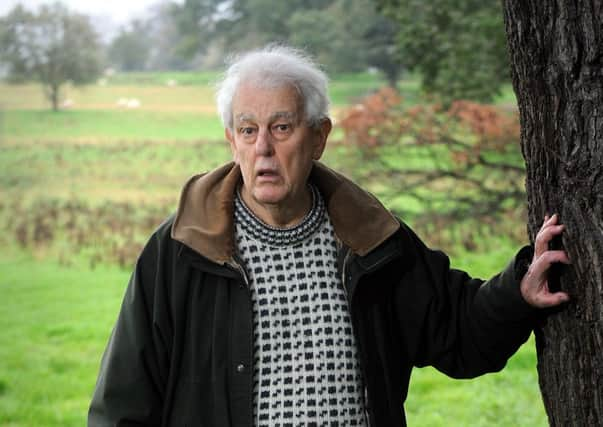Book review: The Question of Scotland by Tam Dalyell


The Question of Scotland: Devolution and After by Tam Dalyell | Birlinn, 200pp, £9.99
For almost half a century now Tam Dalyell has been the principled and consistent opponent of devolution and a Scottish Assembly or Parliament. He has bequeathed us the “West Lothian Question”, though its meaning has been turned on its head since he first asked why, if there was a Scottish Assembly, he as MP for West Lothian should be able to vote on matters such as health and education in England but not in his own Scottish constituency. This was such a sensible objection to schemes of devolution that nobody tried to answer it.
Advertisement
Hide AdHis book takes us through the long story, the long sorry story as many of us still think, even while we accept perforce that the Scottish parliament is here to stay, despite our conviction that Scotland is no better governed now than it was before devolution became a reality in 1999, arguably worse governed indeed.
As Professor Peter Hennessy remarks in a brief, admiring introduction, Tam is one of these rare politicians known by his Christian name alone. So “Tam” it shall be for the purpose of this review.
From the first, way back in the early 70s, he recognised what many of his Labour colleagues refused to see: that for the SNP devolution was only a stepping-stone by means of which they might cross the Jordan to the Promised Land of Independence. A devolved parliament was no more than an aperitif or starter. The height of absurdity was reached in the 1999 referendum when Donald Dewar and Alex Salmond campaigned in tandem, Dewar proclaiming that devolution would make for the better governance of Scotland and the United Kingdom, Salmond that it was a first step to independence. As I wrote too often in this paper at the time, they couldn’t both be right. Incidentally Tam remarks that Dewar did not like him, while he “slowly” developed “an increasing distaste for him”. It is quite nice to see the so-called “Father of the Nation” cut down to size. As a student of history Tam knows one should always “search for the private motivations in the public actions of those in a position of power”. Dewar “came to resent London and became passionate about bringing power to Scotland”. Success in doing so would, and indeed did, crown his career.
Tam has always believed that what Scotland needed – and indeed wanted – was better local government because it is local government, not Westminster, or Holyrood now, which is, or should be, responsible for the delivery of services that really matter to people. Local government is much feebler now that it was 20 years ago. He writes, admiringly, affectionately and unfashionably about individual councillors and trade union officials. Loyal to the Labour Party (despite everything, I might add) he has been ready to work with Tories in defence of the Union. In the 70s, Julian Amery, regarded as a right-wing Tory, told him he was more interested in the preservation of the Union than in the return of a Conservative government. The Union is now is disrepair, perhaps beyond repairing, one consequence of devolution being the rise of English nationalism, something that John Major warned us of.
Most of this book is concerned with 1970s, rightly because that is when Labour’s folly in attempting to appease the SNP sold the pass. One chapter deals with his colleague George Cunningham’s amendment to the 1978 Scotland Act which stipulated that a bare “Yes” majority would be insufficient unless it represented at least 40 per cent of the electorate. This sensible proposal was met with fury by devolutionists. Tam reprints Cunningham’s speeches; they still make cogent good sense. It is a great pity that David Cameron didn’t read them and take their message on board before embarking on his EU referendum.
This is a sad book because it is the record of a failure of intelligence and nerve. Between 1974 and 1999 Labour followed a policy of appeasement. The Union is crumbling because of “the belief of rational men and women that an emotional grievance can be assuaged by a rational response”. So a piece of meat was thrown to the tiger and the tiger demanded more. Happily, it is also an engaging and good-tempered book, full of delightfully neat character sketches and anecdotes; a real pleasure to read. Tam remarks that the Dalyells were never Jacobites, but I suppose this is a Jacobite book, a lament for what might have been. n
• Tam Dalyell, Edinburgh International Book Festival, 22 August